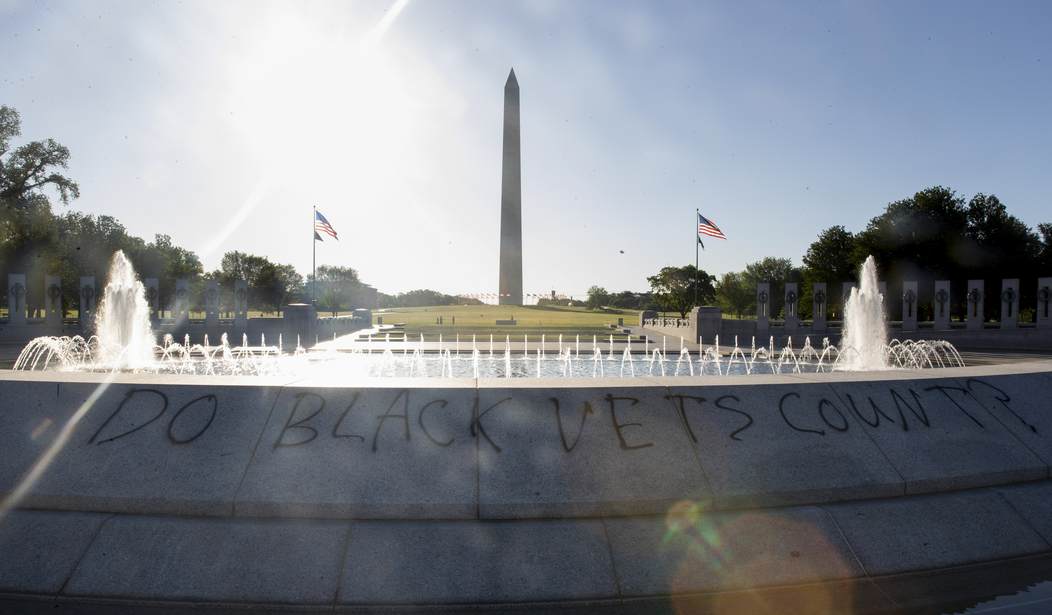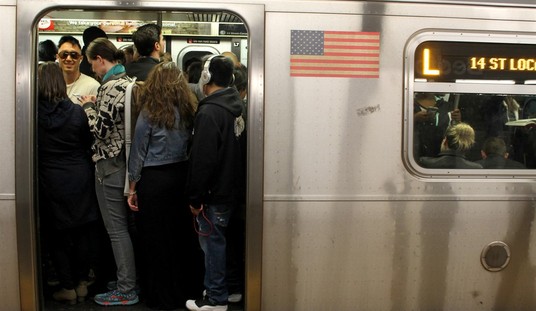Democratic lawmakers on Veterans Day reintroduced legislation that would grant GI Bill benefits to the descendants of black Americans who fought in World War II but were prevented from taking advantage of the program. It is intended to atone for the reality that many soldiers were discriminated against when they attempted to obtain the educational and housing benefits the GI Bill granted.
NBC News reported:
The GI Bill Restoration Act would provide descendants of these veterans a transferable benefit that could be used to obtain housing, attend college or start a business, according to the announcement Thursday from the bill’s sponsors.
To mark Veterans Day, the bill was unveiled Thursday by House Majority Whip James Clyburn of South Carolina and Rep. Seth Moulton of Massachusetts in the House and is expected to be introduced by Sen. Raphael Warnock of Georgia in the Senate. The Democratic lawmakers said that Black veterans had limited access to GI benefits in the past because most state and local veterans administrations were largely run by white officials.
The report noted that “[t]he bill would extend access to Post-9/11 GI Bill educational assistance benefits to the surviving spouse and direct descendants of these veterans who were alive when the bill took effect.
Rep. Clyburn released a statement in which he pointed out that black soldiers who served in World War II were “treated unjustly” after returning to the U.S. and were denied a “path to the middle class.”
He added:
It is important to acknowledge this injustice and help address the wealth gap that was exacerbated by the government’s failure to fulfill this promise to World War II veterans of color.
Sen. Raphael Warnock also released a statement that read:
Black service members fought valiantly in Europe and the Pacific for freedom from tyranny, with hope that their patriotism would be greeted with equality and opportunity once they returned home.
Racial inequity in how the immense benefits of the original GI Bill were disbursed are well-documented, and we’ve all seen how these inequities have trickled down over time, leaving Black World War II veterans and their families without what they earned through service and sacrifice.
If passed, the Government Accountability Office would create a panel of independent experts to determine how benefits would be distributed.
The GI Bill, which was passed in 1944, was intended to provide benefits for service members who served in World War II. It provided education, housing, and other benefits to these soldiers. Unfortunately, these benefits were not accessible to many black service members after they returned home.
History.com explained:
While the GI Bill’s language did not specifically exclude African-American veterans from its benefits, it was structured in a way that ultimately shut doors for the 1.2 million Black veterans who had bravely served their country during World War II, in segregated ranks.
When the bill was being drafted, Southern Democratic lawmakers were concerned that black veterans would use America’s sympathy for the plight of veterans to argue for the destruction of Jim Crow laws. They used the same tactics they had used to ensure that blacks did not benefit from Roosevelt’s New Deal to prevent black veterans from using the GI Bill program.
Mississippi Rep. John Rankin, who served as the chair of the House Veterans Committee, “insisted that the program be administered by individual states instead of the federal government,” according to History.com, which also explained:
Rankin was known for his virulent racism: He defended segregation, opposed interracial marriage, and had even proposed legislation to confine, then deport, every person with Japanese heritage during World War II.
Unfortunately, Rankin succeeded, which meant that southern states could deliberately administer the program in a way that shut out black veterans. This means that many were unable to overcome the myriad of obstacles that the states placed in their way due to their skin color. The article noted:
From the start, Black veterans had trouble securing the GI Bill’s benefits. Some could not access benefits because they had not been given an honorable discharge—and a much larger number of Black veterans were discharged dishonorably than their white counterparts.
Veterans who did qualify could not find facilities that delivered on the bill’s promise. Black veterans in a vocational training program at a segregated high school in Indianapolis were unable to participate in activities related to plumbing, electricity and printing because adequate equipment was only available to white students.
Of course, black veterans were also subject to violence when they tried to use their benefits. The article noted one example in which a crowd threw rocks at black veterans when they attempted to move into a Chicago housing development. “Thousands of Black veterans were attacked in the years following World War II and some were singled out and lynched,” the author wrote.
These are only a few of the ways in which racists in southern governments robbed black veterans of their benefits – and by extension – their pathway to the middle class. The fact that the government allowed the program to be implemented in a way that was blatantly designed to benefit only white veterans is a wrong that should be addressed. When the government specifically takes actions intended to harm a particular group, it makes sense that it should do something to rectify the evil it perpetrated or allowed.
While other forms of reparations might not be reasonable, ensuring that the relatives and descendants of those who were prohibited from accessing the benefits to which they were entitled seems reasonable. These soldiers put their lives on the line in a bloody war for a country that still treated them as second-class citizens. If they were not given their just rewards, the next best thing is to ensure their families receive what was promised.













Join the conversation as a VIP Member